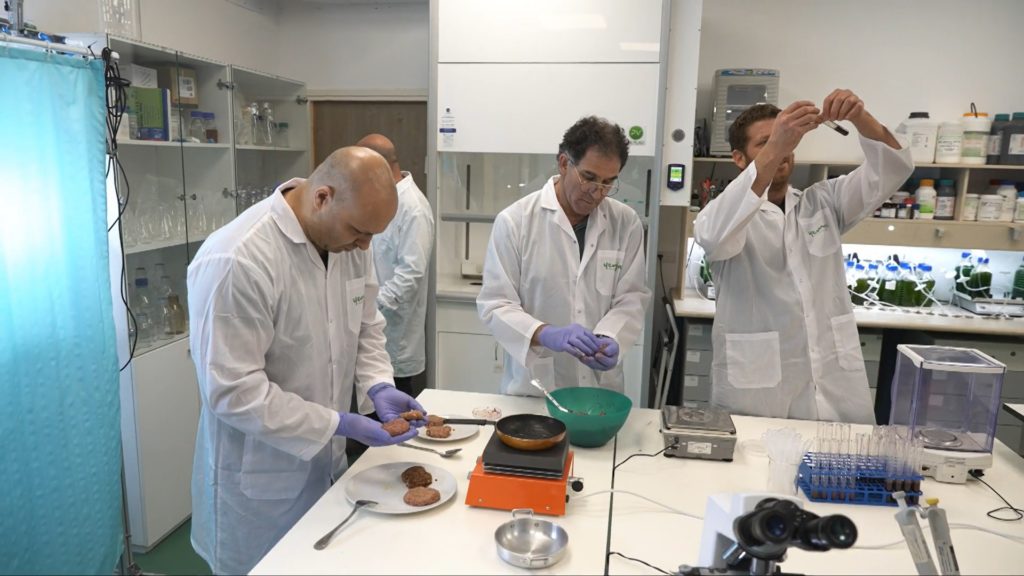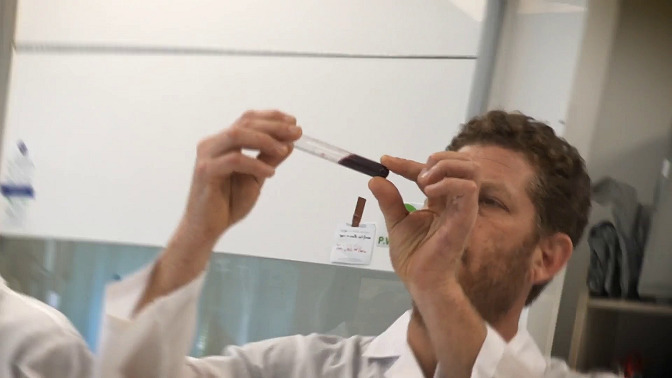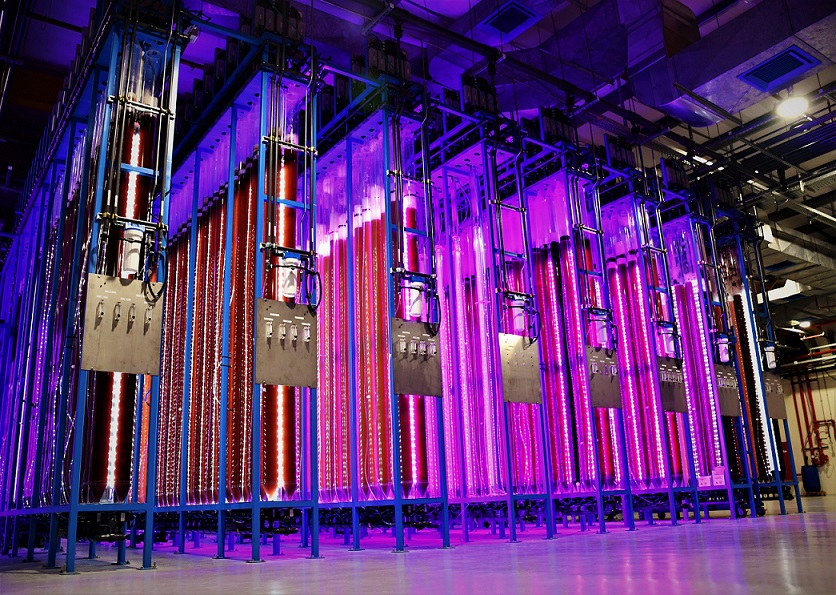3 Mins Read
Yemoja is a marine ingredient startup already recognised in the cosmetics industry. Now, it is moving into the plant-based meat sector. It is in the process of developing red microalgae, branded as Ounje, which will allow meatless products to bleed realistically without artificial colour additives.
Meaning “food” in West-African language Yoruba, Ounje will be a nutrient-dense medium. Replicating the juicy feel and iron-rich flavour of conventional meat, it is being developed to take plant alternatives to the next level. It has positive implications for the cultured meat sector as well, as a potential structural scaffold.

Controlled conditions, exciting surprises
Yemoja has built a complex indoor system for the cultivation of microalgae bio compounds. Careful control of light, pH and temperature is essential, resulting in contaminant-free compounds. The purity of the finished products is what makes them suitable for cosmetic and nutraceutical applications. Despite controlled conditions, surprising results can still be unearthed.
“While working on a new formulation for cosmetic applications, we serendipitously discovered that this specific composition yields a substance that resembles blood in appearance and texture,” said Amikam Bar-Gil, PhD, co-founder and CTO of Yemoja. “Encouraged by the first test results, we decided to push the boundaries further and take it to the next level, trying it out in test products. The results were an immediate proof of concept.”
Applications for food tech
Yemoja claims that Ounje is a clean and 100 percent plant-based substitute for heme. It is being further developed with cultured and plant-based meats in mind. At present, beetroot juice or colour additives are still widely favoured. They can require added sugars to change colour when cooked, however. The patented microalgal heme appears red when ‘raw’ and browns when heated.
Piloting is underway with one cultured meat producer and a plant-based startup. Results are reported as looking “highly promising”. Within cultured analogues, it is being trialled as a scaffold, not just a blood substitute. “We believe our algae can imbue cultured meat-cells with a nutrient-rich media to feed on,” said Bar-Gil.” We are currently assessing its potential to act as a suitable biomaterial scaffold on which the cells can grow. This structure will allow it to mimic the behaviour of meat, especially when it hits the skillet.”

The microalgae movement
Experts are predicting that microalgae will play an important role in the development of sustainable food systems. Requiring less energy and water to grow than conventional plant crops, it is a resilient compound with multiple applications.
Earlier this year, Singapore-based Sophie’s Bionutrients revealed its first burger patty created from microalgae. 100 percent plant-based and containing more protein than beef, it was created with allergy sufferers in mind. The development came after initially looking into seafood alternatives and expanding the capacity of the algae to include beef substitutes.
Elsewhere, San Diego’s Triton AI has announced a partnership with plant-based giant Tofurky. The two will be working together to develop a range of products earmarked for early 2022 release. No details have been released yet but foods are being designed to appeal to the flexitarian contingent. The partnership comes after Triton launched a bid to make the most realistic plant-based tuna in the market.
Chicago-based Back of the Yards Algae Sciences (BYAS) has utilised algal heme to harness a deeper flavour profile for vegan fish and seafood. It produces an ingredient to be added to plant proteins and comes after developing an ingredient to be made widely available to burger producers. It cited Impossible Foods’- whose heme is defining criteria is their ability to taste exactly like red meat- unwillingness to sell its heme technology as a motivating factor, to benefit the whole plant-based sector.
All images courtesy of Yemoja.




